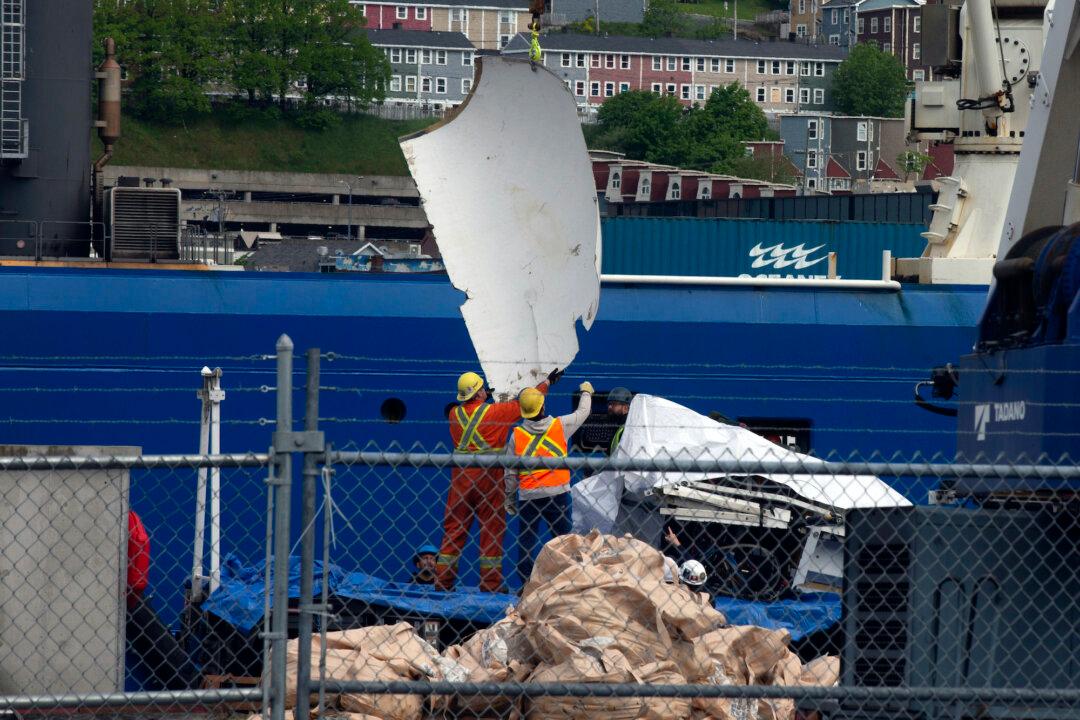The U.S. Coast Guard has recovered remaining debris—including presumed human remains—from the Titan submersible that imploded while attempting to visit the wreck of the Titanic in June.
In an update on the recovery efforts, issued on Oct. 10, officials said marine safety engineers with the Coast Guard’s Marine Board of Investigation (MBI) recovered and transferred remaining debris and evidence from the 22-foot vessel from the North Atlantic Ocean seafloor one week earlier.




